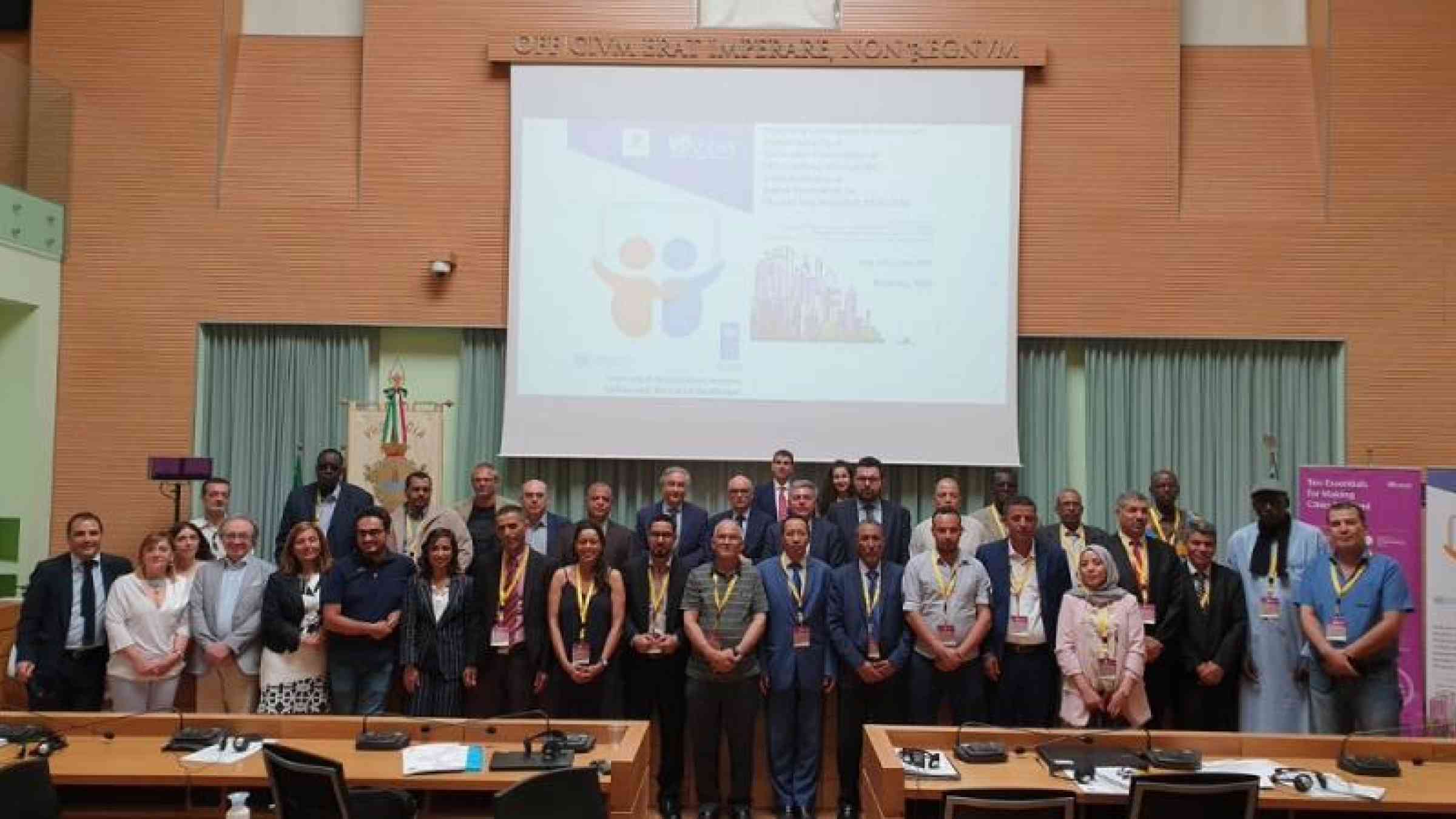Italy hosts Arab cities

POTENZA, 16 July, 2019 – Representatives from ten local municipalities in Tunisia and Mauritania are taking part in the “City-to-City Technical Exchange Workshop on Urban and Territorial Resilience” hosted by the province of Potenza, Italy.
The joint activity is part of the “Enhancing Community Resilience and Human Security of Vulnerable Communities in Urban Settings through the Implementation of the Sendai Framework for Disaster Risk Reduction 2015-2030” project funded by the United Nations Trust Fund for Human Security and implemented by the United Nations Office for Disaster Risk Reduction’s (UNDRR) Regional Office for Arab state in collaboration with the United Nations Development Programme (UNDP) in Tunisia and Mauritania.
“When we speak of resilience, the first thing that comes to mind is to try to create a better future for next generations,” said Mr. Rocco Guarino, President of the province of Potenza after welcoming the participants.
Mr. Guarino reaffirmed Potenza’s commitment to support governments, cities, municipalities and communities worldwide that intend to undertake similar improvement pathways in the field of disaster risk reduction through sharing the experience gained by the Province in decades of concrete and positive work.
“The workshop we are having this week will allow the exchange of knowledge and help us all find the best way to enforce human security,” said Mr. Annunziato Vardè, Prefect of Potenza.
“The Province of Potenza claims an experience that goes far back in time, characterized with a strong institutional action on a small territory with great fragilities and hazards such as earthquakes, landslides and other natural hazards. We are confident that this opportunity will allow us to share knowledge and commitments for mutual engagement in enhancing community resilience,” said Mr. Alessandro Attolico, Executive Director of the Territorial Planning and Civil Protection Office at the Province of Potenza and UNDRR Advocate for the MCR Campaign.
Mr. Valerio Giambersio from the City of Peace for Children Foundation, chaired by Ms. Betty Williams Nobel Peace Prize laureate, presented a model of integration and humanitarian assistance. “The majority of refugees whose stories we presented today are integrated in our society and our aim is to use our full capacity to improve their life and make our community more resilient,” he said.
Deputy Chief of the UNDRR Regional Office for Arab states, Mr. Fadi Jannan, highlighted the substantial efforts being made by Arab States to enhance the resilience and security of their local communities.
“I would like us all to reflect on how we can capitalize on this opportunity to build synergies, learn from peer experiences and promote best practices in the field of Disaster Risk Reduction,” he said.
UNDRR facilitates City-to-City exchange initiatives intended to ignite collaboration and formalize networks between cities to learn from global and regional practices on disaster and climate resilience.
Since the launch of the Making Cities Resilient Campaign ten years ago, various exchanges of experiences and dialogues on disaster risk reduction have taken place both between Arab and other local governments from Africa, Asia, Europe, and Latin America.
“I hope we all benefit from this experience and share our best practices on dealing with floods and sea level rise as Tunisia and Mauritania have similar risks and culture” said Mr. Taleb Mahjoub, Mayor of Tevragh Zeina
Director General at the Ministry of Environment and Local Affairs in Tunisia, Mr. Hedi Chebili highlighted that Tunisia is looking forward to the creation of a strong network of cooperation between the cities and municipalities of Tunisia, Mauritania and Potenza.
There was a consensus among all the panelists and participants that the city-to-city exchange is a great opportunity to disseminate best practices and find innovative solution to reduce disaster risk and enhance community resilience.